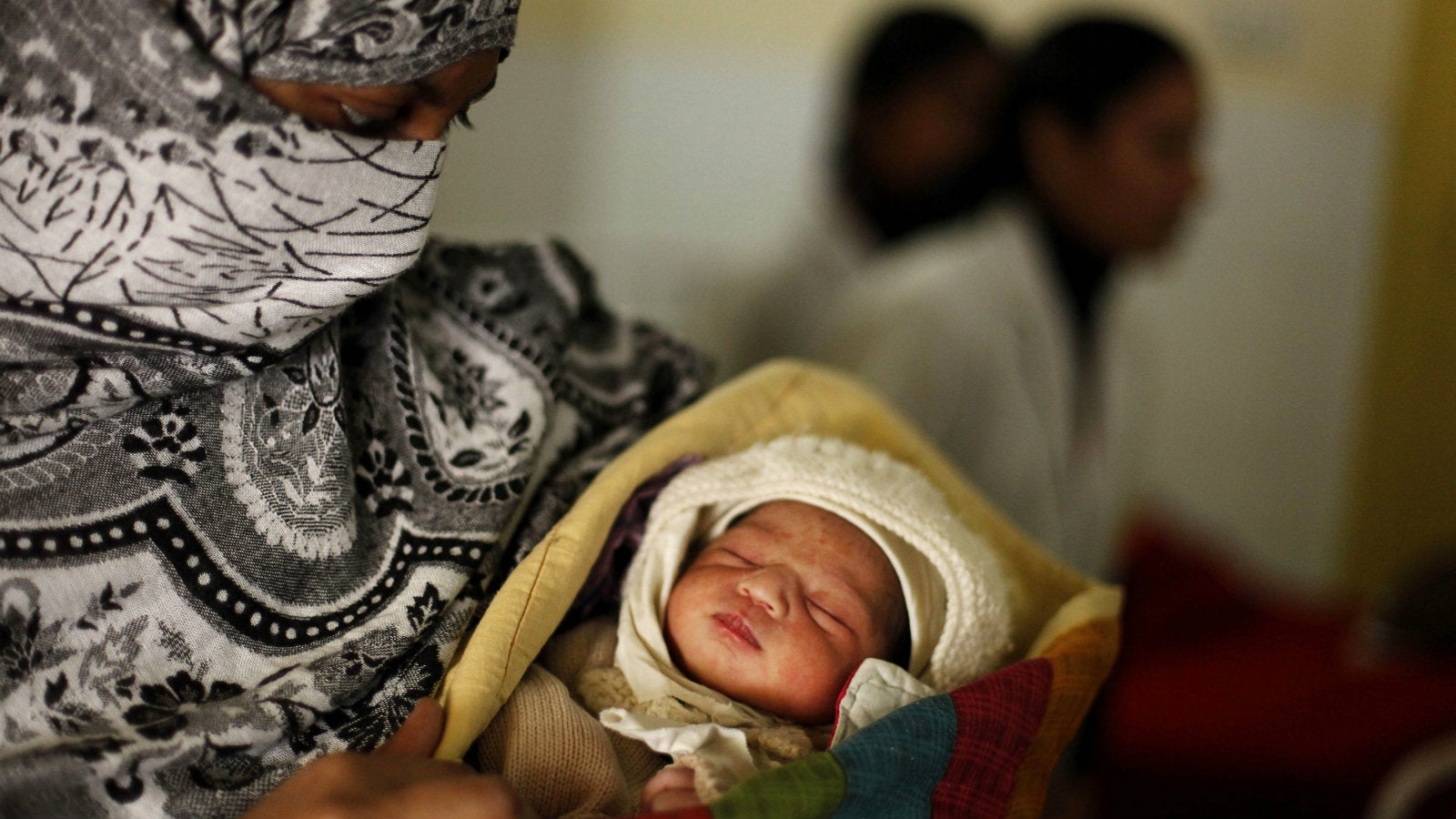Indian parents are fighting for the right to breastfeed in public places
In conservative India, parents are increasingly pushing back against the stigma over breastfeeding babies in public places.


In conservative India, parents are increasingly pushing back against the stigma over breastfeeding babies in public places.
Last week, mothers in Kolkata planned to protest outside the South City Mall after it responded crudely to a woman’s complaint on Facebook for being told to breastfeed her baby in the bathroom. In its response, which was later deleted, the South City Mall told Abhilasha Arup Das Adhikari that breastfeeding in public would “compromise the privacy” of other shoppers, and asked her to do “home chores at your home and not in the mall.”
The tone-deaf post sparked heavy criticism on social media, and the mall management was forced to apologise and fire the agency in charge of its Facebook account.
The incident was only the latest sign of India’s hypocritical discomfort with women nursing their children out in the open. In a country where sexualised representations of the female body are rife in advertisements, TV shows, and movies, a woman breastfeeding in public is still seen by many as vulgar and inappropriate. As a result, shopping malls and other public spaces often relegate nursing facilities to the washrooms, if they have them at all.
However, washrooms in India are rarely a clean and comfortable place to feed a child, so parents are beginning to demand better facilities.
Earlier this year, the parents of then nine-month-old Avyaan filed a public interest litigation (PIL) on his behalf at the Delhi high court, arguing that the lack of nursing and changing rooms infringes on babies’ right to privacy and dignity of life.
Neha and Animesh Rastogi were prompted to file the PIL after taking a three-hour flight from Delhi to Bengaluru and finding no space or privacy provided to breastfeed the child.
“Right to privacy and right to life are our basic rights. We cannot deny these to our children just because they are helpless,” Animesh Rastogi, a lawyer himself, told The Times of India newspaper. “More than legalities, it is also a question of mindset. For example, the New Delhi Municipal Council in its reply (to the HC) had said it is making baby change rooms beside the toilets. I have a simple question—would you eat beside your toilet? Why are you then asking the children to do it.”
The family’s PIL, filed in July, came just a few months after another controversy over breastfeeding erupted in India when a Malayalam language magazine featured a woman doing so on its cover. After its March 2018 cover was unveiled, Grihalakshmi faced heavy criticism for using a model and not a mother, exploiting women and children, sexualising breasts, and more. Critics filed petitions in the courts, accusing the magazine of obscenity. But the Kerala high court backed the magazine, saying obscenity, like beauty, was in the eye of the beholder.
Interestingly, the stigma around breastfeeding in public is a relatively new phenomenon in India. In Kerala, for instance, academics have said there was nothing unusual about women nursing their children in public prior to the 1980s and 1990s. The protesting mothers in Kolkata said the same.
But the onset of globalisation and the gradual adoption of both western attire and western morality have changed attitudes, making women more likely to be shamed or stared at when breastfeeding in public.
Fortunately, the government is making some moves to ease the situation for mothers and babies in public places. Last year, for instance, the railway ministry said 100 waiting rooms across the country would be equipped with private nursing facilities.